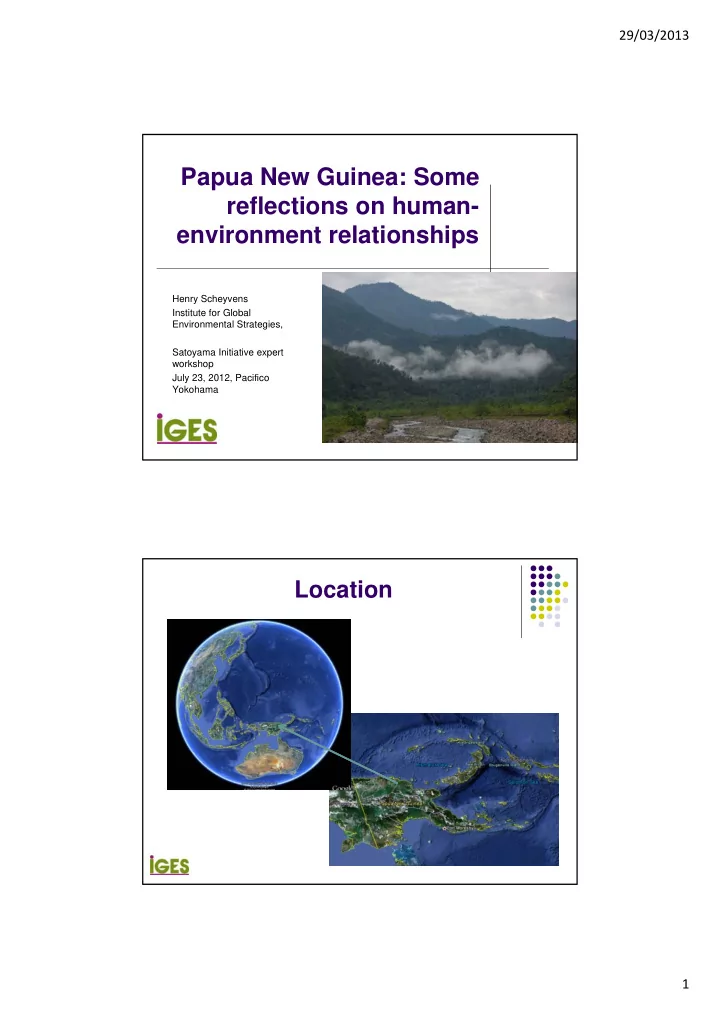

29/03/2013 Papua New Guinea: Some reflections on human- environment relationships Henry Scheyvens Institute for Global Environmental Strategies, Satoyama Initiative expert workshop July 23, 2012, Pacifico Yokohama Location 1
29/03/2013 Basic facts and figures Total land area of 46.17 million hectares (Japan, 37.8 million ha); Mostly mountains with coastal lowlands and rolling foothills Population: 6.3 million (2011); population growth rate of 1.94% Has several thousand separate large self-sufficient communities, most with only a few hundred people; divided by language (over 800 distinct languages), customs, and tradition 97% of the land owned by the people (not the state) through customary forms of tenure 87% of population is rural PNG forests Forests cover about 60% of the country Well-known for biological endemism and diversification; thought to hold more than 5% of the world’s biodiversity Over 2,000 timber species 2
29/03/2013 Human activities modifying forests Shifting agriculture Socio- economic Small-scale conversion by communities production for their own commercial agriculture landscape? Selective logging of forests at industrial scale by companies that have acquired timber rights from the communities (12 million ha) Conversion for large-scale agriculture by companies that have acquired land rights from communities (5 million ha) Ecosystems services critical to survival and livelihoods 3
29/03/2013 Shifting agriculture also key to survival 4
29/03/2013 Industrial-scale logging – many problems, few benefits Conversion for large-scale agricultural development – many problems now associated with the “global land grab” 5
29/03/2013 Conversion by communities for small- scale agriculture – importance source of income IGES projects in PNG(1): Research to support small-scale, internationally certified, community- based timber harvesting 6
29/03/2013 IGES projects in PNG (2): Training community teams to monitor forest biomass Final observations Supportive policies and frameworks to promote socio- ecological production landscapes needed Participatory land-use planning key to sustainable rural communities in PNG 7
Recommend
More recommend